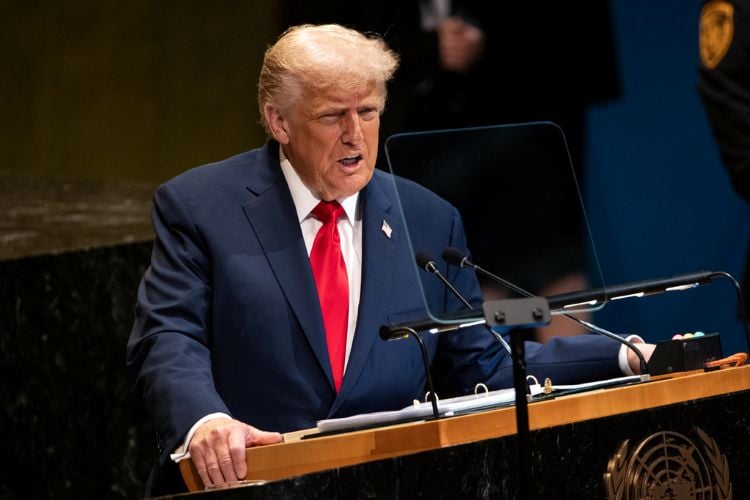Although President Trump has been accused of “always chickening out,” he has not shied away from applying pressure on countries ranging from Iran to Venezuela. In recent months, however, Trump has consistently chickened out with one country: China. Since the late spring, Trump has made concession after concession to Communist Party General Secretary Xi Jinping and gotten little to nothing in return.
The switch to concessions was triggered by President Trump’s climb-down on his favorite economic tool: tariffs. Trump started his second term with a series of tariff escalations against China. By mid-spring, however, he had largely backed down in exchange for . . . nothing. Beijing merely lowered its tariffs to where they had been previously. Grand words from the US about opening the Chinese market have been revealed as nonsense.
Instead, the US has turned dovish. With import tariffs and market access capped by Chinese resistance, Trump switched to trying to cut the trade deficit by giving the People’s Republic of China (PRC) what it wants: American technology. This is not a new attitude for the President. In his first term, he dismissed national security as an unacceptable “excuse” for blocking exports to the PRC.
Then it was jet engines, now it’s information technology. Nvidia won permission to export a chip, the H20, previously not available to the PRC. But Beijing quickly rejected the H20. The company then began talks with the Trump administration to sell a version of the Blackwell, a more advanced chip. President Trump has suggested he will allow this.
In light of the President’s first-term behavior as well as the administration’s July decision to permit export of chip design software, it’s likely a Blackwell variant will be sold to China fairly soon. Access to more US technology has been one of Beijing’s top demands for a good 15 years. President Trump has gotten off to a quick start this term in giving the PRC exactly what it wants.
Semiconductors have been called the new oil. Trump is also favoring China with regard to the old oil. The US imposed an additional 25 percent tariff on India, citing imports of Russian oil, even though Chinese imports of Russian oil consistently outstrip Indian imports. Beijing faces no tariffs for those, just talk.
Meanwhile, the US has imposed sanctions on the PRC for importing from Iran, but is not enforcing them. The President does not appear committed to those sanctions, posting that China can buy Iranian oil.
The Trump administration is not only failing to enforce US law on Chinese oil purchases, but also sidestepping the law on TikTok. Congress designed legislation to maximize the President’s power to force a rapid divestiture of TikTok. Trump has now delayed that deadline (illegally) yet again, wasting his own leverage. Although the White House has touted a deal, Beijing still has not explicitly agreed to terms.
Then there is Taiwan. Trump has been a frequent critic of the island, saying that Taiwan “stole our chip business” and “doesn’t give us anything.” Meanwhile, Trump insists that Xi Jinping told him he would not invade Taiwan “as long you’re president.” Perhaps it should come as no surprise that President Trump has been tougher on Taiwan than China in recent months.
This summer, the White House signaled to Taipei that it would prefer Taiwan’s President Lai Ching-te not transit through New York. The Pentagon, meanwhile, rejected the visit of Taiwan’s Minister of National Defense Wellington Koo for defense policy talks in Washington, instead requiring that more junior counterparts meet in Alaska.
More important, Trump reportedly rejected a $400 million arms sales package destined for Taiwan. Although the first Trump administration sped up the arms sales process with Taiwan, this administration appears to be slowing it down, consistent with its desire to avoid tensions with China. The military balance in East Asia is at risk and Pentagon officials insist that US arms sales should be directed to Taiwan rather than Ukraine, yet Trump is selling less to Taipei.
Joe Biden once said “all politics is personal.” This certainly seems to describe Trump’s captivation by Xi. He noted, “Think of President Xi: central casting, a brilliant guy… he runs 1.4 billion people with an iron first. Smart, brilliant, everything perfect.”
Back home, where China’s questionably managed economy and continued political purges raise doubts about his choices, Xi does not seem as smart as he does to Trump. When it comes to US-China relations, however, Trump is making Xi look brilliant.
